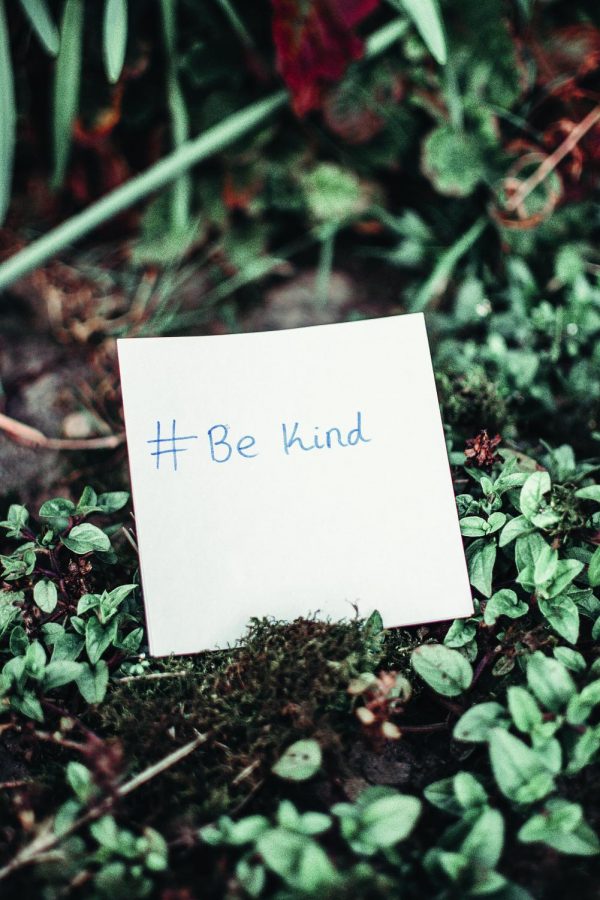Treat mental health seriously
Addi Seybert discusses the mental health stigma.
Oct 22, 2020
“Oh my God, he’s a psycho!”
“Ugh, this Iowa weather is so bipolar.”
“I hate it when my room is messy, haha I’m so OCD.”
Funny phrases used to emphasize meaning– we’ve all heard them, and chances are, we’ve all used them. However, what many people don’t realize is that these phrases are incredibly harmful to the psychological community as well as those afflicted with the cited disorders. Using psychological terms so colloquially (and incorrectly) increases the stigma surrounding mental illness and promotes the spread of misinformation to the public.
Within the field of psychology, these terms are used to describe legitimate mental disorders that have been diagnosed by a trained clinician. The diagnoses come as a result of debilitating symptoms and interference with daily life. For some who are truly struggling with a clinical mental illness, hearing other people use their diagnosis as the butt of a joke is both harmful and offensive.
Take OCD, for example. OCD stands for Obsessive-Compulsive Disorder, which is an anxiety disorder characterized by an intense compulsion in order to get rid of persistent, unwanted thoughts. The most commonly used form of OCD in media refers to those who suffer from OCD with obsessive thoughts of germs crawling on their skin or getting them sick, accompanied with an intense compulsion to clean or wash their hands. While this can certainly be an aspect of someone’s OCD, that is not the only thing it means. Some people believe they must flick the light switch 3 times before leaving or their mother will die and some people cannot step on any sidewalk cracks or they have to start their walk entirely over again. Obsessions and compulsions vary significantly from person to person. OCD is incredibly debilitating; it interferes with people’s abilities to maintain relationships, hold down jobs, arrive on time and many other daily activities. Many people with OCD would do anything to not have to act on their compulsions, but society treats them as though they’re choices. So, while you might really like a clean room or you prefer to have your books stacked a certain way, you probably do not have OCD and need to stop treating it like a cute personality quirk.
Another disorder used frequently in colloquial terms is narcolepsy. Take a second to picture a narcoleptic person. Chances are, you’re probably picturing someone falling asleep in the middle of their conversations, passed out face-first in their bowl of soup. Haha, how hilarious, they can’t stop falling asleep. So funny. But have you ever stopped to learn about what narcolepsy actually is? Narcolepsy is a sleep and autoimmune disorder that affects the brain’s sleep cycle, which causes the afflicted person to get stuck in the REM stage (the stage in which dreams take place) and therefore not ever get restful sleep.
As a result, people with narcolepsy constantly feel as though they haven’t slept for 48 hours, no matter how much sleep they get. This can result in excessive daytime sleepiness, memory loss, weight gain, physical and mental exhaustion, and much more. This does not necessarily mean people with narcolepsy just pass out with no warning– some do, some don’t.
Everyone’s symptoms are different. While there are some medications on the market, they are very expensive and do not always help, as narcolepsy is a lifelong disorder with no cure. Yet despite the bleak prognosis, those with narcolepsy have been able to overcome the stigma of their diagnosis by defying the odds; they are doctors, teachers, lawyers, judges… and even your favorite opinion writer, yours truly.
Psychological disorders are real, not to mention scary, painful and deeply misunderstood. People with mental disorders struggle enough with the stigma surrounding their realities; the last thing they need is for someone without a mental disorder to use their diagnosis in a colloquial fashion, let alone as the butt of a joke. OCD does not mean clean, the same way narcolepsy does not mean sleepy.
Using psychological terms colloquially is incredibly harmful and only adds to the stigma surrounding them. Next time you’re making a joke, take a second to think of the psychological community. Are the words you’re about to say harmful to someone or their condition (inadvertently or not)? If so, don’t say it– even if you’re not sure. Just by thinking twice before you speak, you could help make a difference. Watch your words today for a more inclusive tomorrow.








